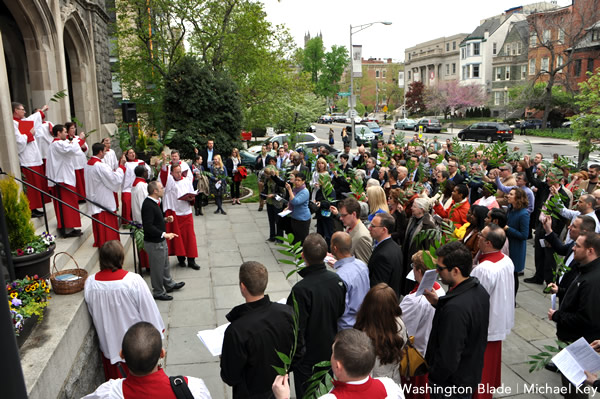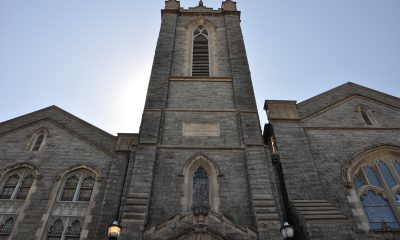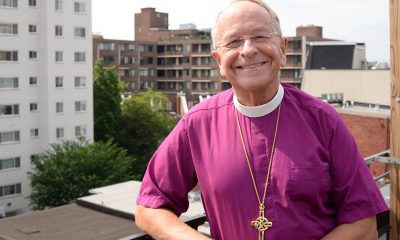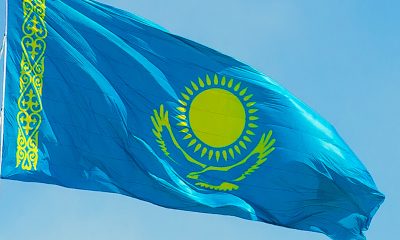Arts & Entertainment
Leading the way
Local Methodist church hopes to change denominational law on marriage
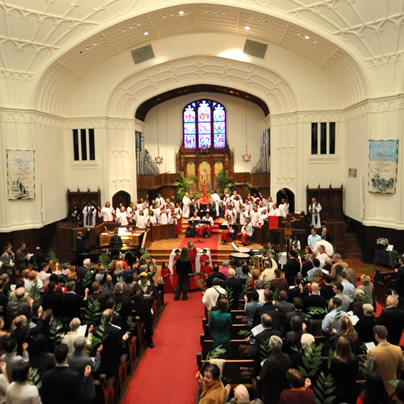
A Washington church hopes a campaign using video testimonials from gay and lesbian Methodists will help push through a resolution sanctioning marriage equality in the church later this month, reversing more than 30 years of anti-gay sentiment in the nation’s third largest denomination.
DoorsToEquality.org, described as a national, laity-led campaign for marriage equality, uses personalized stories and grassroots advocacy to encourage church leadership to revise what some are calling discriminatory language included in the Book of Discipline, according to organizers at Foundry United Methodist Church.
The book, which lays out the tenets of the faith, prohibits United Methodist ministers from performing same-sex marriages and churches from hosting them. Foundry leaders and campaign supporters say they don’t want a sweeping change to the tenets, rather, a compromise.
“Our resolution was what we thought was the most modest resolution that we could present, which is simply where marriage is legal, our clergy can conduct them and they can be held in their church buildings,” says Rev. Dean Snyder, senior pastor of Foundry.
The campaign, introduced in February, comes as delegates from across the globe prepare to attend the church’s General Conference, a denomination-wide planning meeting, later this month.
Snyder, who’s straight, believes the simple resolution could be a first step for the church, likely to bend further as more states legalize marriage.
“If that happens, four years from now we believe a resolution would pass allowing all churches to conduct the ceremonies,” he says.
For now, organizers are focusing on influencing some of the 1,000 delegates set to gather in Tampa from April 24 through May 4 to discuss church policy and vote on any revisions. That push includes building awareness through Twitter, Facebook and traditional press, as well as calling delegates and holding coffee-shop discussions.
But perhaps the campaign’s most impactful arm is its most visible one: a series of YouTube videos featuring gay and lesbian Methodists sharing their experiences with building families, coming out and the importance of their church and faith in their lives.
In one video, soft music plays as a transgender man describes a warm childhood relationship with the church and its painful end.
“As I got older, into middle and high school, I started to feel somewhat alienated because of my sexual orientation also just my gender expression and so I kind of walked away from church,” Ty Trapps tells the camera. “From there, I just sort of searched knowing that I wanted to go back to a church but not really finding the right fit.”
In another video, a lesbian couple embraces as they describe feeling invisible without the church’s recognition of their year-old marriage.
The women close the video shouting in unison “As Methodists, we believe that unity of love will open the doors to equality.”
“One of the things we strongly believe is that personal stories are very powerful here,” says Ann Brown Birkel, convener of Foundry’s LGBT inclusion advocacy group. “We need to connect with these people in parts of the country who don’t think they know any gay people. The more you personalize an issue, the easier it is to understand.”
If the campaign is successful, it will bring to an end an anti-gay doctrine that’s persisted since the early ‘70s.
At the time, “there was a group of bishops who knew that they had gay pastors serving in their areas, who suffered from the homophobia that much of society suffered from and they began to become worried that their service would be a problem,” Snyder says, adding the result was the 1972 statement that homosexuality was not compatible with Christian teaching.
The topic has since become the perennial subject of debate at the conference, with delegates voting related resolutions down every time, according to Wayne Rhodes, director of communications at the General Board of Church and Society for the United Methodist Church. The language persists, but Rhodes says there’s evidence Snyder and his supporters’ cause could have a shot.
“It has been getting closer and closer in the votes,” Rhodes says.
Surprisingly, a major hurdle has come as the faith spreads. A large percentage of the church’s expansion is in Africa, where conservative attitudes about homosexuality persist, Rhodes says.
“They get more delegates and if they are not in favor of homosexuality-positive language, they have more votes with which to defeat it,” says Rhodes. “But this all started long before Africa had as many delegates.”
Indeed, Snyder estimated much of the ground-level opposition is longstanding and is linked to baby boomers raised in a more conservative era.
Among younger people, however, Snyder said attitudes are more liberal. That combined with pressure as smaller denominations like the Episcopalians and Lutherans become more gay friendly could help trigger change.
“Larger organizations often change much slower,” Snyder says. “But when it changes, the larger the institution is, the more impact it has on the society.”
Foundry has always had a higher-than-average number of LGBT members, which church staff attributes to its location near Dupont Circle and 14th Street. The church has been “open and affirming” for years.

It’s been a year filled with drama and music, re-imaginings and new works. There was a lot on offer in 2025, and much to enjoy. Here are 10 now-closed productions that come to mind.
On Valentine’s Day at Folger Theatre on Capitol Hill, out actor Holly Twyford served as narrator for “The Love Birds” a Folger Consort work that melds medieval music with a world-premiere composition by acclaimed composer Juri Seo and readings from Geoffrey Chaucer’s “A Parlement of Foules”
Standing behind a podium, Twyford beautifully read Chaucer’s words (translated from Middle English and backed by projected slides in the original language), alternating with music played on old and new instruments.
While Mosaic Theater’s “A Case for the Existence of God,” closed in mid-December, it’s proving a production not soon forgotten. Precisely staged by Danilo Gambini, and impressively acted by Lee Orsorio and Jaysen Wright, the soul-searching two hander by out playwright Samuel D. Hunter, tells the story of two men who form an unlikely friendship based on single-fatherhood, a specific sadness, and hope.
The action unfolds in a small office in southern Idaho, where the pair discuss the perplexing terms of a mortgage loan while delving deep into their lives and backgrounds. Nothing is left off the table.
Shakespeare Theatre Company’s spring production of “Uncle Vanya” gave audiences something both fresh yet enduring. Staged by STC’s artistic director Simon Godwin, the production put an impeccably pleasing twist on Russian playwright Anton Chekhov’s classic. It ranks among the very best area productions of the year.
Featuring a topnotch cast led by Hugh Bonneville (TV’s “Downton Abbey”) in the title role, the play was set on an unfinished stage cluttered with costume racks and assorted props, all assembled by crew uniformed in black and actors in street clothes. Throughout the drama tinged with comedy, the actors continued to assist with ever increasingly period set changes accompanied by an underscore of melancholic cello strings. It was innovative and wonderful.
GALA Hispanic Theatre’s production of Manuel Puig’s “Kiss of the Spider Woman” was an intimate and affecting piece of theater. Staged by José Luis Arellano, it starred out actors Rodrigo Pedreira and Martín Ruiz as two very different men whose paths cross as convicts in an Argentine prison.
Arena Stage scored with a re-imagined and updated take on the widely liked musical “Damn Yankees.” Directed by Sergio Trujillo, the Broadway bound production has been “gently re-tooled for its first major revival in the 21st century,” moving the action from the struggling Washington Senators baseball team to the turn-of-the-century Yankees lineup. Ana Villafañe’s charmingly seductive Lola and a chorus of fit ball players made for a good time.
Also at Arena, out playwright Reggie D. White’s new work “Fremont Ave.” was very well received. A semi-autobiographical glimpse into home and the many definitions of that idea specifically relating to three generations of Black men, the work boasts a third act with a deeply queer storyline to boot.
Before his smash hit “Hamilton” transformed Broadway, Lin-Manuel Miranda wrote “In the Heights,” a seminal musical set against the vicissitudes of an upper Manhattan bodega. Infused with hip-hop, rap, and pop ballads, the romance/dramedy takes place over a lively few days in the vibrant, close-knit Latin neighborhood, Washington Heights.
Signature Theatre’s exciting take on “In the Heights” featured a talented cast including out actor Ángel Lozado as the bodega owner who figures prominently in the barrio and the action.
Studio Theatre’s recent production of lesbian playwright Paula Vogel’s newest work “The Mother Play,” a drama with humor, is about a well put together alcoholic mother and her two gay children living under difficult circumstances in the less glitzy parts of suburban Maryland. With nuanced performances and smart direction, the production was terrific.
Keegan Theatre surpassed expectations with its production of “Lizzie” a punk rock opera about Miss Borden, the fabled axe wielding title character. Performed by a super all-female cast, they belted a score that hits hard on subjects like money, queerness, and strained (to say the least) family relationships.
Round House Theatre impressed autumn audiences with “The Inheritance,” a two-part drama sensitively staged by out director Tom Story and acted by a mostly queer cast that included young actor Jordi Bertrán Ramírez in a breakout performance.
Penned by out playwright Matthew López, the epic work inspired by E.M. Forster’s novel “Howards End,” explores themes of love, legacy, and the AIDS crisis through the lives of three generations of gay men in New York City.
Prior to opening, Story commented that with the production’s predominately queer cast you get actors who “really understand the situation, the humor, and the struggle. It works well.” And he was right.
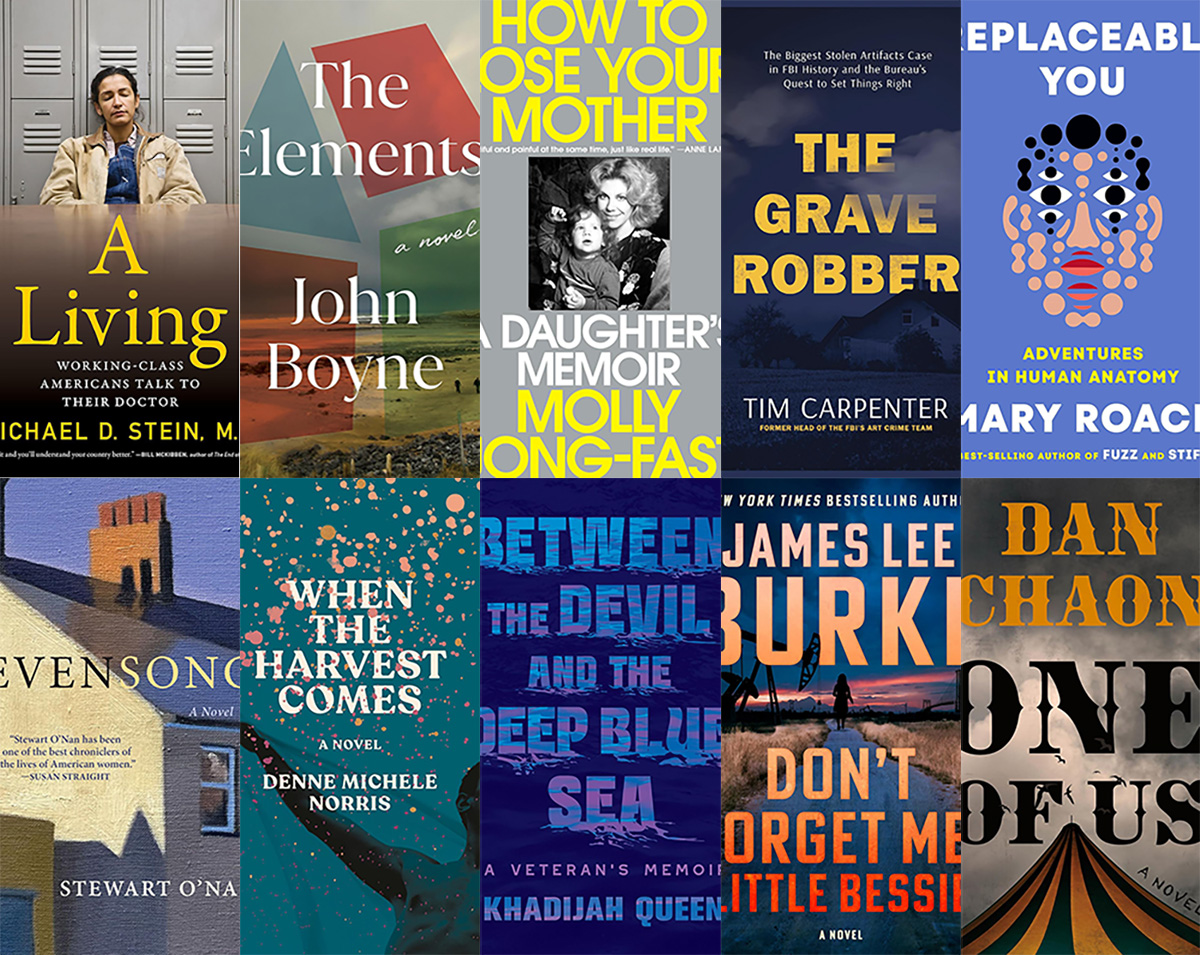
This past year, you’ve often had to make do.
Saving money here, resources there, being inventive and innovative. It’s a talent you’ve honed, but isn’t it time to have the best? Yep, so grab these Ten Best of 2025 books for your new year pleasures.
Nonfiction
Health care is on everyone’s mind now, and “A Living: Working-Class Americans Talk to Their Doctor” by Michael D. Stein, M.D. (Melville House, $26.99) lets you peek into health care from the point of view of a doctor who treats “front-line workers” and those who experience poverty and homelessness. It’s shocking, an eye-opening book, a skinny, quick-to-read one that needs to be read now.
If you’ve been doing eldercare or caring for any loved one, then “How to Lose Your Mother: A Daughter’s Memoir” by Molly Jong-Fast (Viking, $28) needs to be in your plans for the coming year. It’s a memoir, but also a biography of Jong-Fast’s mother, Erica Jong, and the story of love, illness, and living through the chaos of serious disease with humor and grace. You’ll like this book especially if you were a fan of the author’s late mother.
Another memoir you can’t miss this year is “Between the Devil and the Deep Blue Sea: A Veteran’s Memoir” by Khadijah Queen (Legacy Lit, $30.00). It’s the story of one woman’s determination to get out of poverty and get an education, and to keep her head above water while she goes below water by joining the U.S. Navy. This is a story that will keep you glued to your seat, all the way through.
Self-improvement is something you might think about tackling in the new year, and “Replaceable You: Adventures in Human Anatomy” by Mary Roach (W.W. Norton & Company, $28.99) is a lighthearted – yet real and informative – look at the things inside and outside your body that can be replaced or changed. New nose job? Transplant, new dental work? Learn how you can become the Bionic Person in real life, and laugh while you’re doing it.
The science lover inside you will want to read “The Grave Robber: The Biggest Stolen Artifacts Case in FBI History and the Bureau’s Quest to Set Things Right” by Tim Carpenter (Harper Horizon, $29.99). A history lover will also want it, as will anyone with a craving for true crime, memoir, FBI procedural books, and travel books. It’s the story of a man who spent his life stealing objects from graves around the world, and an FBI agent’s obsession with securing the objects and returning them. It’s a fascinating read, with just a little bit of gruesome thrown in for fun.
Fiction
Speaking of a little bit of scariness, “Don’t Forget Me, Little Bessie” by James Lee Burke (Atlantic Monthly Press, $28) is the story of a girl named Bessie and her involvement with a cloven-hooved being who dogs her all her life. Set in still-wild south Texas, it’s a little bit western, part paranormal, and completely full of enjoyment.
“Evensong” by Stewart O’Nan (Atlantic Monthly Press, $28) is a layered novel of women’s friendships as they age together and support one another. The characters are warm and funny, there are a few times when your heart will sit in your throat, and you won’t be sorry you read it. It’s just plain irresistible.
If you need a dark tale for what’s left of a dark winter season, then “One of Us” by Dan Chaon (Henry Holt, $28), it it. It’s the story of twins who become orphaned when their Mama dies, ending up with a man who owns a traveling freak show, and who promises to care for them. But they can’t ever forget that a nefarious con man is looking for them; those kids can talk to one another without saying a word, and he’s going to make lots of money off them. This is a sharp, clever novel that fans of the “circus” genre shouldn’t miss.
“When the Harvest Comes” by Denne Michele Norris (Random House, $28) is a wonderful romance, a boy-meets-boy with a little spice and a lot of strife. Davis loves Everett but as their wedding day draws near, doubts begin to creep in. There’s homophobia on both sides of their families, and no small amount of racism. Beware that there’s some light explicitness in this book, but if you love a good love story, you’ll love this.
Another layered tale you’ll enjoy is “The Elements” by John Boyne (Henry Holt, $29.99), a twisty bunch of short stories that connect in a series of arcs that begin on an island near Dublin. It’s about love, death, revenge, and horror, a little like The Twilight Zone, but without the paranormal. You won’t want to put down, so be warned.
If you need more ideas, head to your local library or bookstore and ask the staff there for their favorite reads of 2025. They’ll fill your book bag and your new year with goodness.
Season’s readings!
The Blade may receive commissions from qualifying purchases made via this post.
a&e features
Looking back at the 10 biggest A&E stories of 2025
‘Wicked,’ Lady Gaga’s new era, ‘Sexy’ Bailey and more
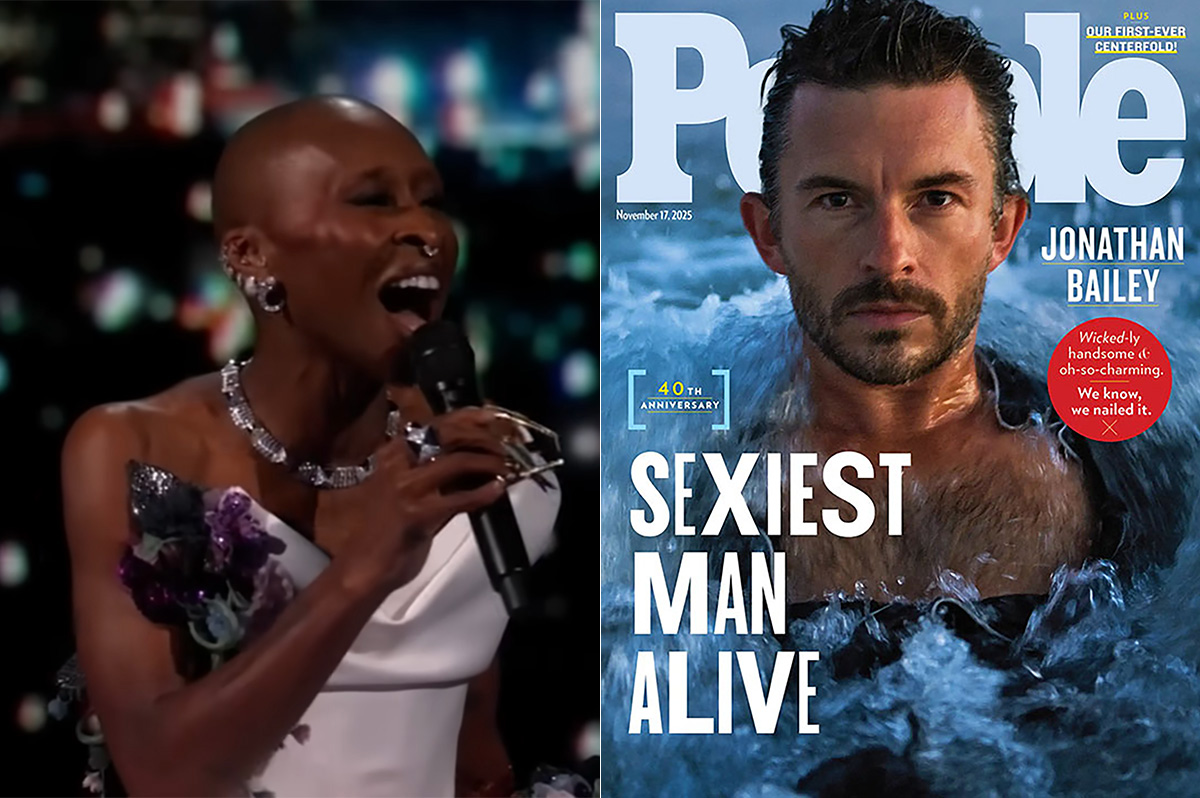
Although 2025 was a year marked by countless attacks on trans rights and political setbacks, the year also saw brilliant queer artists continuing to create art. From Cannes and Sundance Award winners now vying for Oscar consideration to pop icons entering new stages of their careers, queer people persevered to tell their stories through different media.
With the state of the world so uncertain, perhaps there’s no more vital time to celebrate our wins, as seen through some of this year’s top pop culture moments. While there’s no collection of 10 stories that fully encompass “the most important” news, here are some events that got the gays going:
10. ‘Mysterious Gaze of the Flamingo’ wins big at Cannes
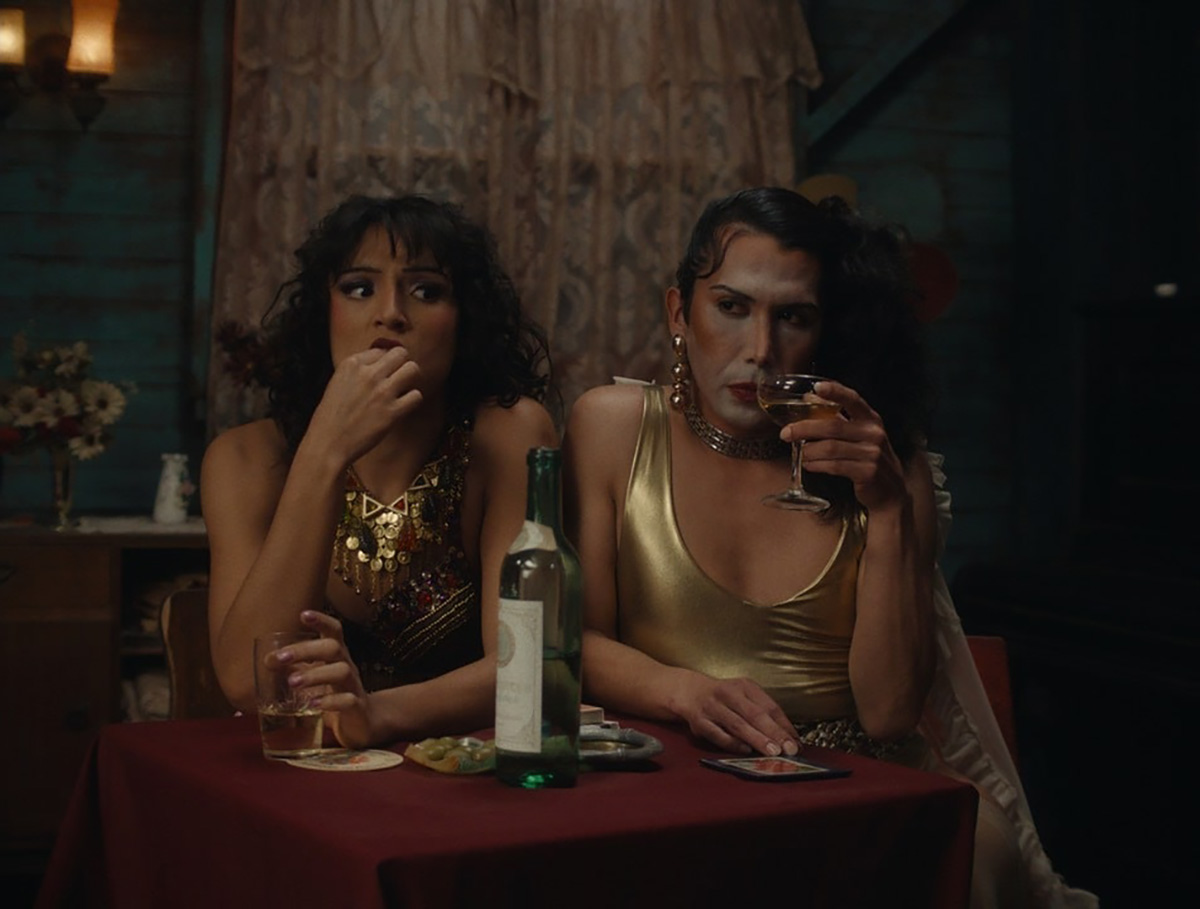
The Cannes Film Festival has become a crucial start for films hoping to make their way to the Oscars, and first-time director Diego Céspedes won the top Un Certain Regard prize for his intimate western “The Mysterious Gaze of the Flamingo.” The film is set in the ‘80s and is intended as an allegory for the AIDS epidemic. Seeing a film that unpacks vital queer history win one of the most coveted awards at Cannes has been a huge point of pride in the independent filmmaking community.
Since the film bowed at Cannes, it has been selected as Chile’s Oscar entry in the Best International Feature race. Speaking with The Blade during the film’s AFI Fest run in October, Céspedes said: At first, I was kind of scared to have this campaign position in the times that we’re living [in] here. But at the same time, I think the Oscars mean a huge platform — a huge platform for art and politics.”
9. ‘The Last of Us’ returns for an even gayer season 2
While the first season of The Last of Us gave us one of TV’s most heartbreaking queer love stories in the episode “Long, Long Time,” Season 2 doubled down on its commitment to queer storytelling with the blossoming relationship between Ellie (Bella Ramsey) and Dina (Isabela Merced). The show expanded on the pair’s relationship in the original video game, making it perhaps the central dynamic to the entire season. That unfortunately came with more homophobic backlash on the internet, but those who checked out all the episodes saw a tender relationship form amid the show’s post-apocalyptic, often violent backdrop. For their performance, Ramsey was once again nominated for an Emmy, but Merced deserved just as much awards attention.
8. ‘Emilia Pérez’ sparks controversy
Jacques Audiard’s genre-bending trans musical “Emilia Pérez” proved to be an awards season juggernaut this time last year, winning the Golden Globe for Best Musical/Comedy. But when the lead star Karla Sofia Gascón’s racist, sexist, and homophobic old tweets resurfaced, the film’s Oscar campaign became a tough sell, especially after Netflix had tried so hard to sell Emilia Pérez as the “progressive” film to vote for. Mind you, the film had already received significant backlash from LGBTQ+ audiences and the Mexican community for its stereotypical and reductive portrayals, but the Gascón controversy made what was originally just social media backlash impossible to ignore. The only person who seemed to come out of the whole debacle unscathed was Zoe Saldaña, who won the Oscar for Best Supporting Actress over Ariana Grande.
7. ‘Sorry, Baby’ establishes Eva Victor as major talent
Back in January at the Sundance Film Festival, Eva Victor (known by many for her brand of sketch comedy) premiered their directorial debut “Sorry, Baby” to rave reviews, even winning the Waldo Salt Screening Award. Victor shadowed Jane Schoenbrun on the set of “I Saw the TV Glow,” and seeing Victor come into their own and establish such a strong voice immediately made them one of independent cinema’s most exciting new voices. A memorable scene in the film sees the main character, Agnes (played by Victor), struggling to check a box for male or female, just one example of how naturally queerness is woven into the fabric of the story.
Most recently, Victor was nominated for a Golden Globe for her performance in the film, and she’s represented in a category alongside Jennifer Lawrence (“Die My Love”), Jessie Buckley (“Hamnet”), Julia Roberts (“After the Hunt”), Renate Reinsve (“Sentimental Value”) and Tessa Thompson (“Hedda”). The film also received four Independent Spirit Award nominations overall.
6. Paul Reubens comes out in posthumous doc
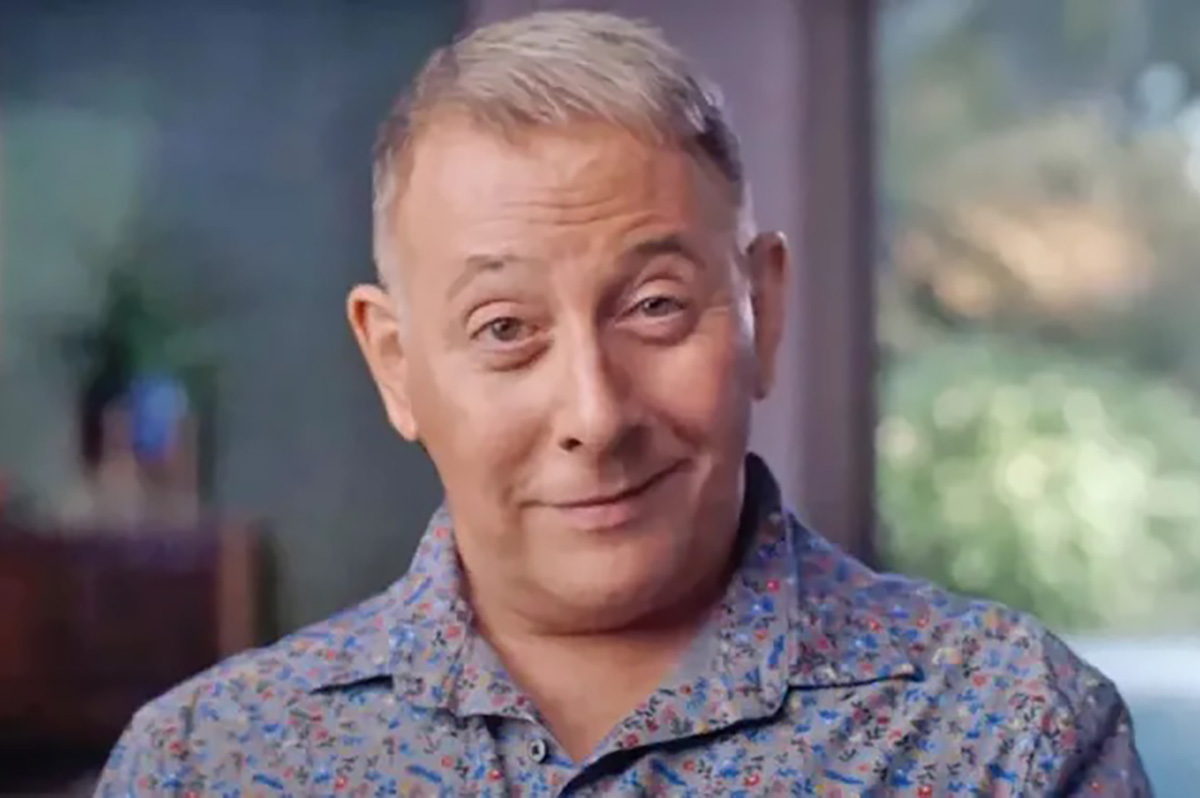
While Paul Reubens never publicly came out as gay before passing away in 2023, the two-part documentary “Pee-wee as Himself” premiered back in May on HBO Max, giving the legendary comedian a chance to posthumously open up to the world. Directed by Matt Wolf, the documentary explores how Reubens found his alter ego Pee-Wee Herman and why he kept his private life private.
The documentary won an Emmy in the Outstanding Documentary or Nonfiction Special category and remains one of the most critically acclaimed titles of the year with a 100% Rotten Tomatoes score. Also worth noting, the National Geographic documentary Sally told the posthumous coming out story of Sally Ride through the help of her long-time partner, Tam O’Shaughnessy.
5. Lady Gaga releases ‘Mayhem’
Lady Gaga entered a new phase of her musical career with the release of Mayhem, her seventh album to date. From the frenzy-inducing pop hit Abracadabra to the memorable Bruno Mars duet featured on “Die With a Smile,” seeing Gaga return to her roots and make an album for the most die-hard of fans was especially rewarding after the underwhelming film releases of “House of Gucci” and “Joker: Folie à Deux.” Gaga has been touring with The Mayhem Ball since July, her first arena tour since 2018. She even extended her tour into 2026 with more North American dates, so the party isn’t stopping anytime soon. And Gaga is even set to make an appearance next May in “The Devil Wears Prada 2.”
4. Cynthia Erivo, Ariana Grande perform at the Oscars
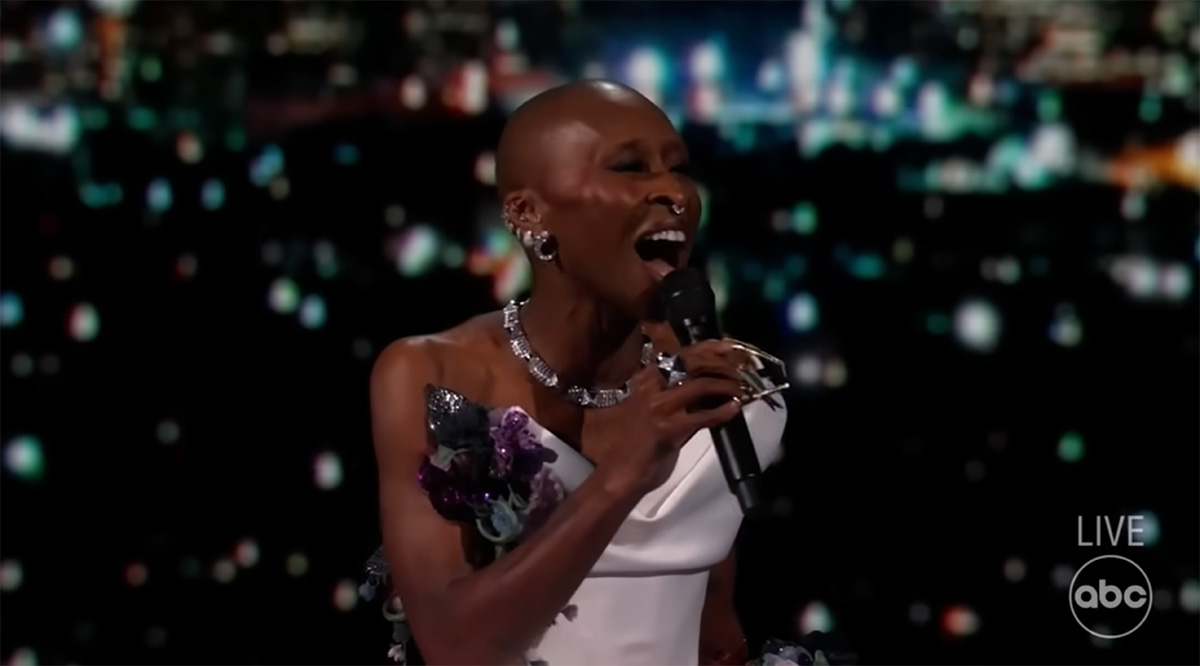
While “Wicked: For Good” didn’t quite reach the heights of the first film, we will forever have Cynthia Erivo and Ariana Grande’s breathtaking live performance that opened the 97th Academy Awards. The pair sang a rendition of “Over the Rainbow,” “Home,” and “Defying Gravity,” paying proper homage to the original 1939 “Wizard of Oz.” Even non-Wicked fans can’t deny how magical and brilliantly staged this performance was. With both Erivo and Grande up for acting Oscars last year, they’re hoping to repeat success and make history with consecutive nominations. Either way, let’s hope there’s another live performance in the making, especially with two new original songs (The Girl in the Bubble and No Place Like Home) in the mix.
3. Indya Moore speaks out against Ryan Murphy
Indya Moore has consistently used social media as a platform for activism, and in September, posted a 30-minute Instagram live speaking out against “Pose” co-creator Ryan Murphy. Moore claimed that Murphy wasn’t being a true activist for trans people. “Ryan Murphy, we need you to do more. You need to address the racism, the violence, and the targeting of people on your productions, Ryan Murphy. You do need to make sure trans people are paid equally. Yes, Janet did the right thing,” Moore said. Murphy was also back in the headlines this year for the critically panned “All’s Fair” and the controversial “Monster: The Ed Gein Story” starring Laurie Metcalf and Charlie Hunnam.
2. Cole Escola wins Tony for Best Leading Actor
Few pop culture moments this year brought us together more than Cole Escola winning a Tony award for “Oh, Mary!” the Broadway show they created, wrote and starred in (we love a triple threat!) Escola made history by becoming the first nonbinary person to win a Tony in the leading actor category, and seeing them excitedly rush to the stage wearing a Bernadette Peters-inspired gown instantly became a viral social media moment.
The cherry on top of Escola’s major moment is the recent news that they are writing a Miss Piggy movie with Jennifer Lawrence and Emma Stone producing — news that also broke the internet for the better. We cannot wait!
1. Jonathan Bailey makes gay history as ‘Sexiest Man Alive’
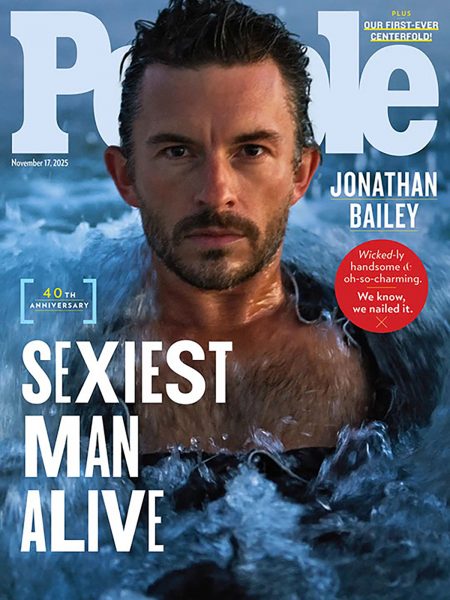
The same year as his on-screen roles in blockbusters “Jurassic World Rebirth” and “Wicked: For Good,” Jonathan Bailey made history as the first openly gay man to be named People magazine’s “Sexiest Man Alive.” The fact that it took 40 years for an openly gay man to earn the title is a signifier of how far we still have to go with queer representation, and seeing Bailey celebrated is just one small step in the right direction.
“There’s so many people that want to do brilliant stuff who feel like they can’t,” he told PEOPLE, “and I know the LGBT sector is under immense threat at the moment. So it’s been amazing to meet people who have the expertise and see potential that I could have only dreamed of.” In 2024, Bailey founded the charity titled The Shameless Fund, which raises money for LGBTQ+ organizations.

